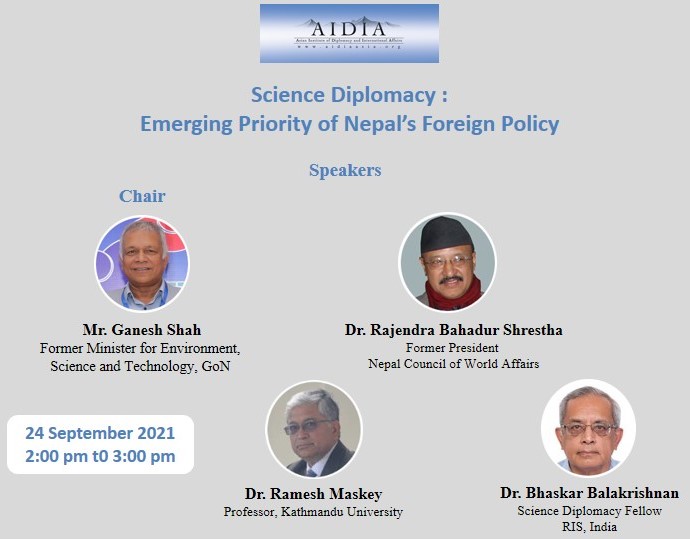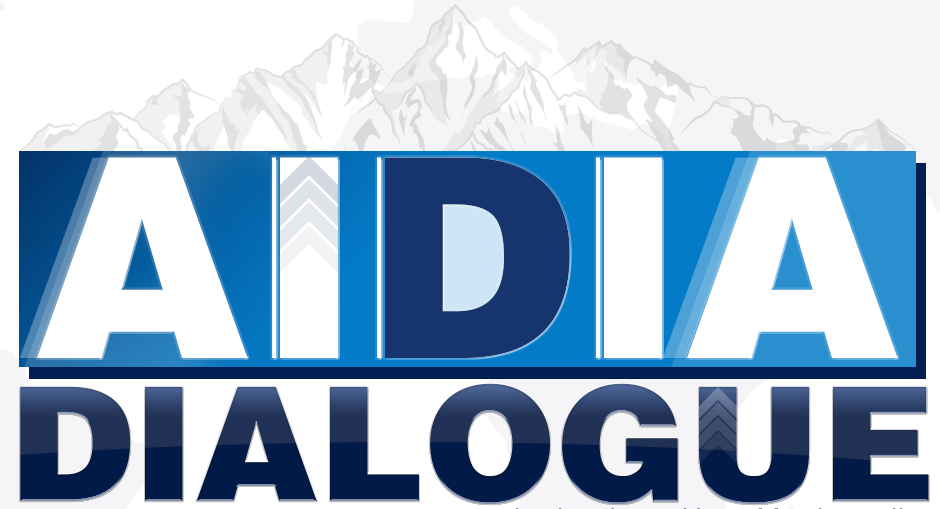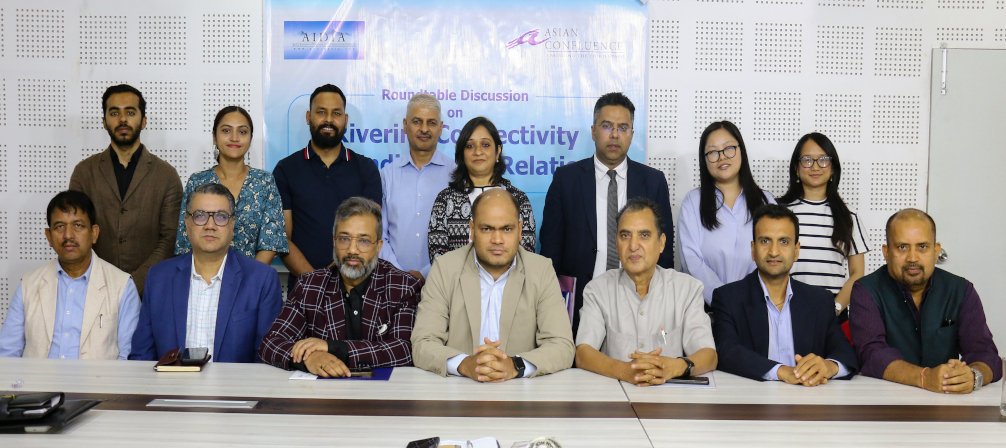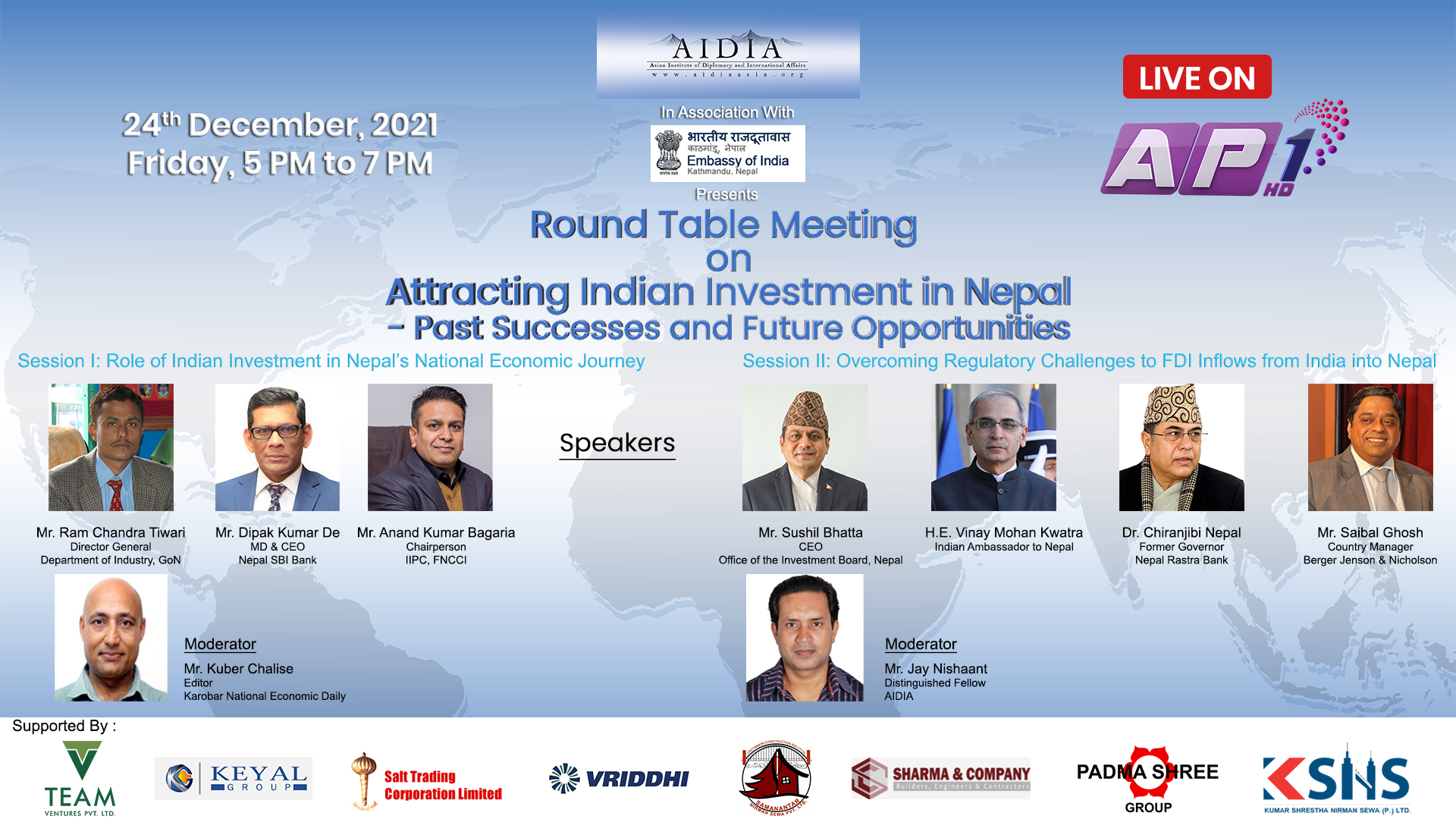In international affairs diplomacy, technology and economics are the most important tools for any nation. Historically, science and technology (S&T) has been one of the main currencies for exchange and dialogue among human societies and sovereign nations. In modern times, it is emerging as an important instrument of techno-economic power that will shape the changing dynamics of international relations and global affairs. Diplomacy is the major instrument of dialogue between nations. It is the art to negotiate to protect one’s interests and promote one’s influence in international affairs. For every sovereign nation both technology and diplomacy are essential tools for managing international relations, the essence of which is protecting national security and projecting national power. Recent advances in technology have opened up vast new areas of communication, cooperation and even friction among nations in their pursuit of security, development and progress. Science and technology today transcend almost all areas of international affairs. The role of science and technology in international affairs is so intrinsic that it is rarely recognized as a separate entity and often taken for granted. The impact of modern dual-use technology on human society and national security has become so large that it would be necessary for foreign policy professionals to understand the finer nuances of technology to successfully negotiate international affairs in future.
Today’s world is extremely interconnected. Most of us take this fact for granted, but its implications cannot be overstated. The rate at which information, resources, and people are able to move from one part of the world to another continues to accelerate at an alarming rate. Undoubtedly, this development has done society immense good. In the last century, global life expectancy has doubled, the percentage of people living in extreme poverty has dropped by about 60%, and world literacy rates have increased by a similar margin. But while these statistics paint a promising picture of human civilization, human progress rests on a fragile foundation of international cooperation; the challenges presented by an interconnected world are immense. War, natural disasters, and economic collapse now exert their effects globally, creating economic and ecological disasters and mass human migrations on an unprecedented scale. And with the US pulling out of major multilateral agreements on trade, climate change mitigation, and denuclearization, you might wonder if our ability to collaborate across borders productively is really up to the task.
Global challenges require global solutions, and global solutions require collaboration between countries big and small, rich and poor, authoritative and democratic. In recent times, Corona epidemic has affected the whole world. Asian countries are more vulnerable to this due to low technology, poverty, lack of health facilities. In this situation, the role of Science Diplomacy becomes more prominent. Science diplomacy is a form of new diplomacy and has become an umbrella term to describe a number of formal or informal technical, research-based, academic or engineering exchanges, within the general field of international relations. In context of Nepal, Nepal is practicing high level of political engagement and low level of scientific and technical engagement with other countries. In Nepal a strong synchronization is needed between politics and science diplomacy.
As such the discussion will address the basics and need of Science Diplomacy in Nepal and how science diplomacy can play a vital role in Nepal’s foreign policy.
Click here for articiation
Speakers
- Zoom meeting





